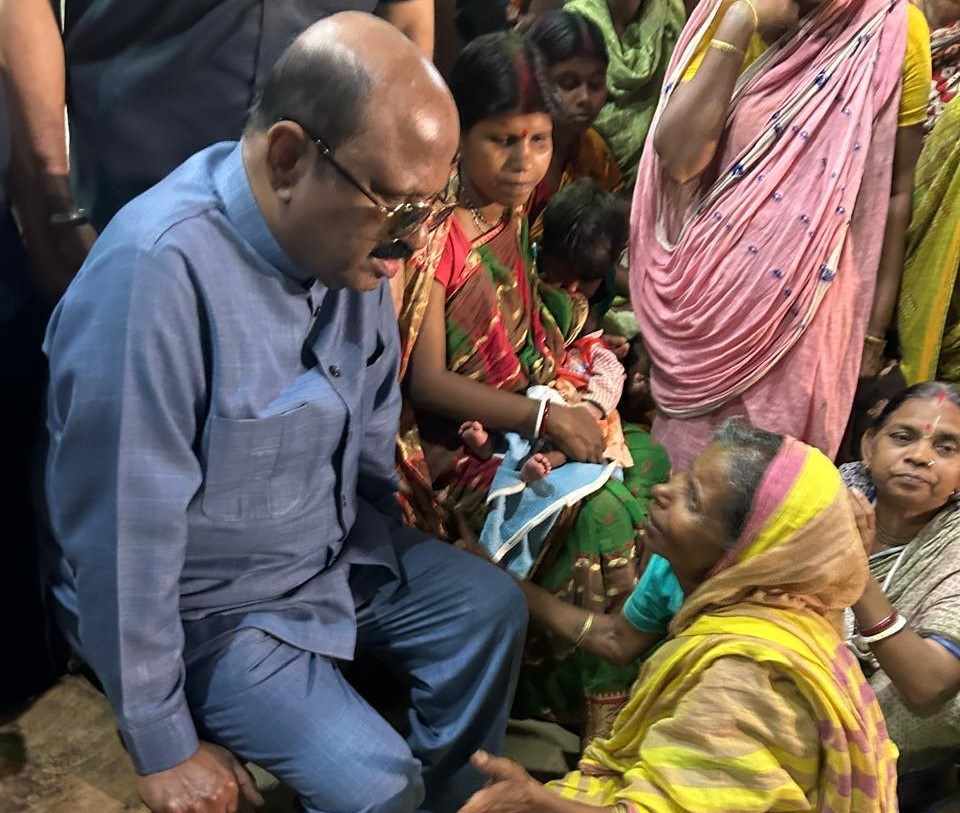Kolkata: Following recent communal disturbances in West Bengal’s Murshidabad district, Governor Dr. C.V. Ananda Bose has submitted a comprehensive report to the central Ministry of Home Affairs (MHA). The report expresses concern that “radicalisation and militancy” represent an escalating danger to the state’s law and order situation.
The Governor contended that the violence seemed “premeditated” and faulted the state administration for inaction despite apparent warning signs. His report also voiced apprehension about the unrest potentially spreading to adjacent districts. It urged the central government to consider “constitutional options” to bring back normalcy and bolster public confidence in the legal system.
Article 356 Mention Ignites Political Row
The Governor’s report generated political friction due to its mention of Article 356, which permits the imposition of President’s Rule. Although a senior official clarified that the Governor had not advised its immediate use, referencing this provision as a potential measure drew strong objections from the governing Trinamool Congress (TMC).
TMC spokesperson Kunal Ghosh described the report as “politically motivated” and akin to fulfilling a “political assignment.” He also questioned the Governor’s silence on the expanded operational zone of the Border Security Force (BSF), now extending 50 km into the state.
Conversely, the Bharatiya Janata Party (BJP) welcomed the Governor’s submission. BJP MP Shamik Bhattacharya stated, “We appreciate the Governor taking the situation seriously. The Centre must now determine the next steps.”
Governor Recommends Central Forces, Inquiry Commission
Within his report, Governor Bose outlined several potential responses to the violence’s aftermath:
Bringing in central forces or BSF personnel to border districts.
Forming a commission of inquiry to examine administrative shortcomings.
Developing comprehensive legislation enabling central intervention in law and order if a state fails to manage the situation.
The Governor specifically pointed to Murshidabad, Malda, and Uttar Dinajpur as districts at high risk, citing their demographic makeup and worsening communal friction.
Violence Described as “Systematic,” Aimed at “Cultural Erasure”
After touring the areas impacted by the riots, Governor Bose characterized the events as aiming for “cultural erasure.” He described the suffering endured by specific communities as “systematic” attacks intended to undermine their identity, calling the violence an uncommon and “grave violation of human rights” in recent history.
The disturbances in Murshidabad broke out following demonstrations against the Waqf (Amendment) Act, which was officially announced on April 8. The conflict resulted in three fatalities and necessitated a temporary halt to internet access in the area.
State Response Criticised for Poor Coordination
The Governor pointed to a “woeful lack of coordination” between administrative bodies and law enforcement, suggesting they were “either unwilling or incapable” of suppressing the violence. He asserted, “The state was clearly aware of the imminent threat but failed to act decisively.”
Report Warns of Deepening Political Polarisation
In his analysis, Governor Bose warned that West Bengal’s political environment is increasingly influenced by religious polarisation. He suggested that both the ruling party and the opposition are exploiting community identities for electoral advantage.
He argued that the TMC’s portrayal as a defender of minority interests has not successfully alleviated communal unease. “The divisions are so entrenched that even assurances from the Chief Minister have failed to stem the tide,” Bose wrote.
He projected a further decline in the law and order situation as the 2026 Assembly elections draw nearer, anticipating increasingly communal political language.
Mixed Reactions from Other Opposition Parties
While the BJP endorsed the Governor’s actions, Congress MP Adhir Ranjan Chowdhury described the report as “very general,” noting that Article 356 was only suggested as a final measure. CPI(M) MP Bikash Bhattacharya dismissed the report entirely, calling it “frivolous” and a “political gimmick.”
Investigation Update: Four Arrests Made
Meanwhile, ongoing investigations into the violence have led to four arrests by the West Bengal Special Task Force (STF), including the primary suspect in a double homicide associated with the Murshidabad riots.


